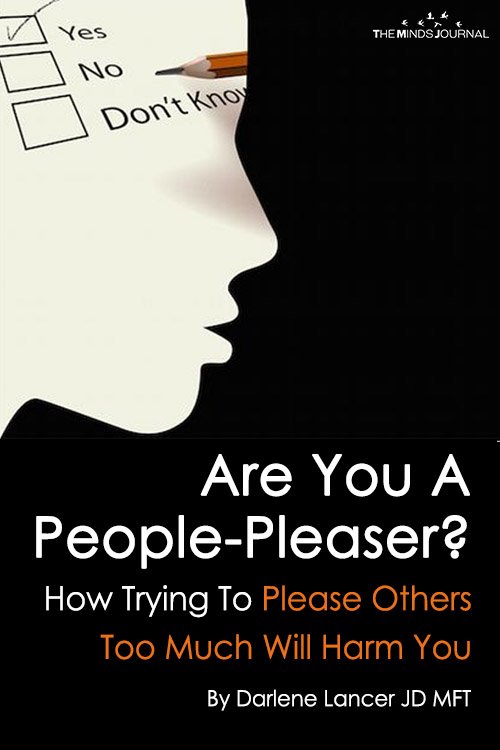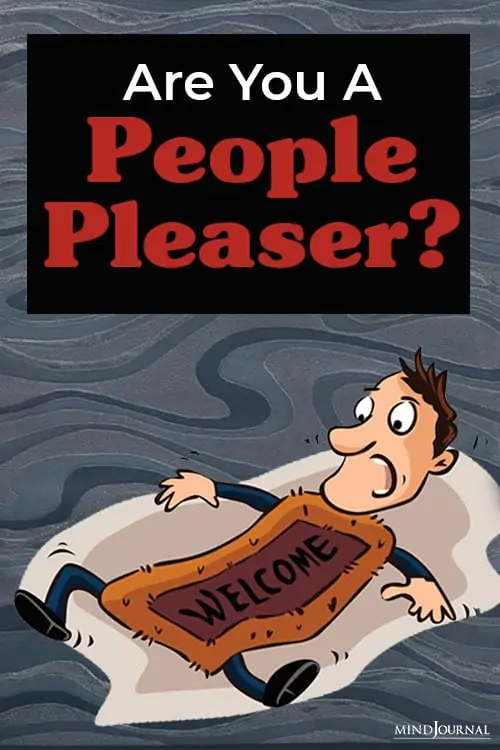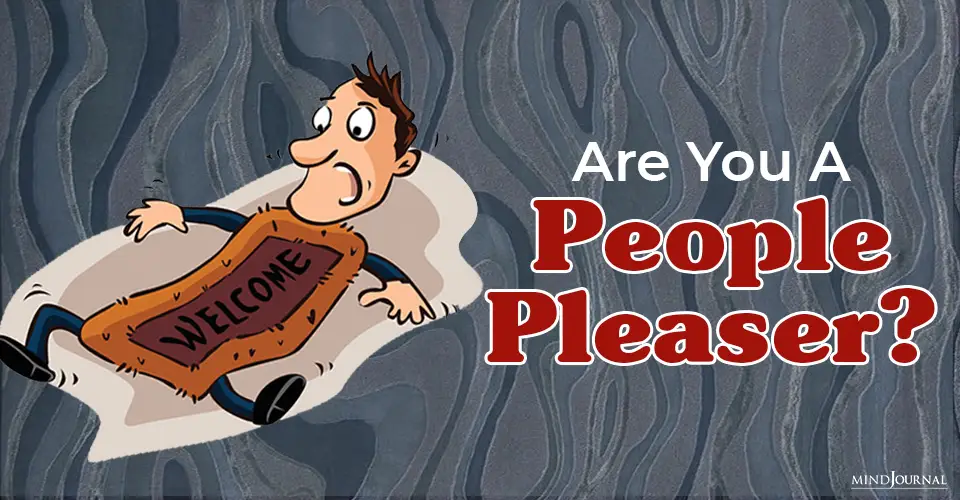Do you think accommodating to family and friends is the best way to survive in this world? Are you a people pleaser?
Everyone starts out in life wanting to be safe, loved, and accepted. It’s in our DNA. Some of us figure out that the best way to do this is to put aside what we want or feel and allow someone else’s needs and feelings to take precedence.
This works for a while. It feels natural, and there’s less outer conflict, but our inner conflict grows.
If we’d like to say no, we feel guilty, and we may feel resentful when we say yes. We’re damned if we do and damned if we don’t.
Our strategy might create other problems. We may put in extra time at work and try to please the boss but get passed over for a promotion or discover we’re doing work we’re not enjoying at all. We may be very accommodating to family and friends and resent that we’re always the one called upon for help, extra work, or to take care of someone else’s problems.
Our love life might suffer, too. We give and give to our partner, but feel unappreciated or unimportant and our needs and desires aren’t considered. We may begin to feel bored, joyless, or mildly depressed. We may miss earlier times when we were happier or more independent. The anger, resentment, hurt, and conflict we always tried to avoid continues to grow. Being alone might appear to be a welcome escape from these challenges, but then we’d end up sacrificing our connection to others, which is what we truly want.
Read 5 Lessons For People Pleasers
Sometimes, it seems like we have to choose between sacrificing ourselves or sacrificing a relationship.
It’s Easier to Just Go Along
We often feel trapped, but don’t know another way to be. Accommodating others is so ingrained in us that stopping is not only difficult, it’s terrifying. If we look around, we might notice other people who are well-liked and don’t people-please. We may even know someone who is kind or admired and is able to say no to requests and invitations.
What’s more, they don’t seem to agonize about it with guilt. How they do that is baffling. We might even envy someone quite popular who doesn’t give a hoot about what others think. If we bother to reflect on all this, we may wonder how we got into such a mess and question our fundamental belief that pleasing is the road to acceptance.
Read 9 Signs You Are Being Overly Nice and People Have Started Taking You For Granted
Although there are other people who choose to be cooperative and kind, we don’t feel as if we have a choice. It can be as hard to say no to someone who needs us as it is to someone who abuses us. In either case, we fear it will negatively affect our relationship, and the guilt and fear of rejection or disappointing someone is overwhelming.
We may have loved ones or friends who would become indignant and even retaliate if we were to say no. Each time, it gets easier to agree when we rather not or to go along and not object. We can turn into a human pretzel trying to win the love or approval of someone we care for – especially in a romantic relationship.
Starting in Childhood
The problem is that for many of us, our pleasing is more than kindness. It’s our personality style. Some children decide that accommodating their parents’ wishes is the safest way to survive in a world of powerful adults and best way to win their parents acceptance and love.
They try to be good and not make waves. “Good” means what parents want. Their parents may have had high expectations, been critical, had rigid rules, withheld love or approval, or punished them for “mistakes,” dissent, or showing anger.
Some children learn to acquiesce merely by observing their parents’ actions with each other or another sibling.
When parental discipline is unfair or unpredictable, children learn to be careful and cooperative to avoid it. Many of us are more sensitive and have a low tolerance for conflict or separation from parents due to genetic makeup, early interactions with parents, or a combination of various factors.
People Pleaser Pays a Price
Unfortunately, becoming a people pleaser sets us on a path of becoming alienated from our innate, true self.
The underlying belief is that who we are isn’t lovable. Instead, we idealize being loved as a means to self-worth and happiness to the point that we crave it. Our need to be accepted, understood, needed, and loved causes us to be compliant and self-effacing. We conclude, “If you love me, then I’m lovable.” “You” comes to mean just about everyone, including people incapable of love!
Preserving our relationships is our uppermost mandate. We strive to be lovable and charitable and reject character traits that we decide won’t serve that goal. We can end up squelching entire chunks of our personality that are incompatible, like showing anger, winning competitions, exercising power, getting attention, setting boundaries, or disagreeing with others. Even when not asked, we willingly give up separate interests that would mean time away from a loved one. The slightest look of disappointment (which we may inaccurately infer) is enough to deter us from doing something on our own.
Read How To Stop People-Pleasing and Still Be Nice: 5 Rules To Live By
Assertiveness feels harsh, setting limits feels rude, and requesting that our needs be met sounds demanding. Some of us don’t believe we have any rights at all. We feel guilty expressing any needs if we’re even aware of them. We consider it selfish to act in our self-interest. We may even have been called selfish by a selfish parent or spouse. Our guilt and fear of abandonment may be so strong that we stay in an abusive relationship rather than leave.
It’s not surprising that we’re often attracted to someone who is the opposite of us – whose power, independence, and certitude we admire. Over time, we can start to think that unlike us, they’re selfish. In fact, we probably wouldn’t be attracted to someone of the opposite sex who is as kind and pleasing as we are. We would consider them weak because deep down we dislike ourselves for being so compliant. Moreover, getting our needs met doesn’t rank high on our list. We’d rather be submissive – but eventually, pay a price for it.
We’re not aware that each time we hide who we are to please someone else, we give up a little self-respect. In the process, our true self (what we really feel, think, need, and want) retreats a bit more. We become accustomed to sacrificing our needs and wants for so long that we may not know what they are. Decades of conveniently accommodating “just this time” whittles away at our connection to our true self, and our lives and relationships begin to feel empty of joy and passion.
Read 9 Important Reminders For A People Pleaser (and strategies on how to stop being one)
We can change!
It’s possible to change and find our voice, our power, and our passion. It requires getting reacquainted with that Self we’ve hidden, discovering our feelings and needs, and risking asserting and acting on them. It’s a process of raising our sense of self-worth and self-esteem and healing the shame we may not even know that we carry, but it’s a worthy adventure of self-reclamation. Learn more about the steps you can take in my books and ebooks on my website, www.whatiscodependency.com.
©Darlene Lancer 2014
Written by Darlene Lancer JD, MFT
Originally appeared on WhatIsCodependency.com
Republished with permission.










Leave a Reply
You must be logged in to post a comment.